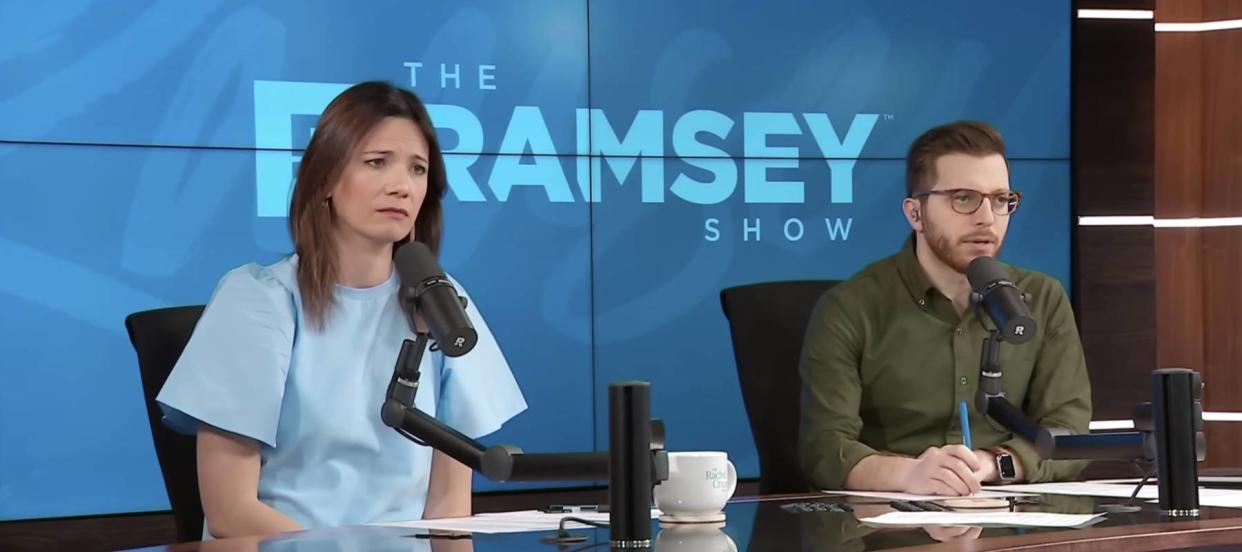‘I ended up in my car’: Houston man struggles with homelessness despite steady job — has $30K in auto loans and credit card debt. The Ramsey Show hosts react

The homeless crisis in the U.S. has worsened in recent years. According to data released by the Department of Housing and Urban Development (HUD), the unhoused population jumped by 12% in the last year — the highest level since 2007.
As the report stated, there were an estimated 653,104 people struggling to find shelter in 2023.
A combination of skyrocketing real estate prices and the end of pandemic-era social assistance programs have been blamed for this ongoing crisis. However, consumer debt may also play a pivotal role, which was the case for Kenneth from Houston, Texas.
Don't miss
Thanks to Jeff Bezos, you can now use $100 to cash in on prime real estate — without the headache of being a landlord. Here's how
Cost-of-living in America is still out of control — use these 3 'real assets' to protect your wealth today, no matter what the US Fed does or says
These 5 magic money moves will boost you up America's net worth ladder in 2024 — and you can complete each step within minutes. Here's how
On an episode of The Ramsey Show, Kenneth described how a mounting pile of credit card debt and auto loans pushed him to the brink financially.
“I ended up [living] in a car,” he said. Despite holding down a steady full-time job, Kenneth’s situation highlights the intense economic pressures ordinary Americans experience every day.
Debt burdened
Kenneth’s job as a sterilization technician should allow him to afford rent in Houston. He earns $18 an hour and works 35 to 40 hours a week, which puts him on track to earn $32,000 in total income this year.
However, a significant portion of his bi-weekly income goes towards debt payments. Kenneth owes $14,000 in credit card debt and has $16,000 outstanding on his car. He pays $346 a month for the auto loan and another $529 to pay off all his credit cards, which means nearly half his paycheck goes to debt payments, leaving little left to pay rent or save to buy a home.
This situation is increasingly common. Consumer debt has been steadily rising in recent years, with American households collectively owning $1.13 trillion in credit card debt and $1.6 trillion in auto loans at the end of 2023, according to the Federal Reserve.
Ordinary families are being squeezed by the rise in cost of living — especially in the housing market. There are only seven million affordable housing units available for 11 million households with extremely low incomes, according to the Houston Habitat for Humanity. Texas is one of six states with the most severe housing shortages and Houston ranked fifth-worst among major metropolitans for housing affordability.
Kenneth faces a difficult situation with limited options, but Ramsey Show co-hosts Rachel Cruze and George Kamel believe there is a path out.
Read more: Generating 'passive income' through real estate is the biggest myth in investing —but here's one surefire way to do it without breaking the bank
An uphill battle against debt
Kenneth said he sleeps in his car and uses a gym membership to access showers. He parks near the building where he works, so transportation isn’t an issue.
Cruze believes Kenneth needs to secure stable shelter first in order to start improving his situation. “Your living situation is my biggest concern,” she told him. “Four walls is what we say — food, utilities, shelter and transportation — [are the] bare necessities of life.”
Unfortunately, Kenneth is reluctant to live with family because it causes emotional distress. “The environment for me around them is [something] I do not enjoy, so I [would] rather stay in the car,” he revealed. He also said his family would expect him to pay rent to live with them, which would make it impossible to keep paying his credit card balance every month.
Nevertheless, Kenneth could seek social assistance to find shelter. Houston was one of the first cities to experiment with a “housing first” approach, which provides basic shelter to those experiencing hardship. This strategy has helped reduce homelessness by 63% since 2011, according to the Cato Institute.
Kamel also encouraged him to seek additional employment. Overtime hours at the office or a side hustle could give Kenneth some breathing room to pay off his accumulated debt balance and eventually turn his situation around.
“Right now, every dollar you can get out of those paychecks needs to go to covering your four walls,” Kamel told Kenneth.
Cruze suggested Kenneth also look into working night shifts and on weekends to supplement his income as much as he can. “It’s going to be exhausting, but you’re going to need to dig yourself out of this hole,” she said.
What to read next
Jeff Bezos told his siblings to invest $10K in his startup called Amazon, and now their stake is worth over $1B — 3 ways to get rich without having to gamble on risky public stocks
Retire richer — why people who work with a financial advisor retire with an extra $1.3 million
The US dollar has lost 87% of its purchasing power since 1971 — invest in this stable asset before you lose your retirement fund
This article provides information only and should not be construed as advice. It is provided without warranty of any kind.
